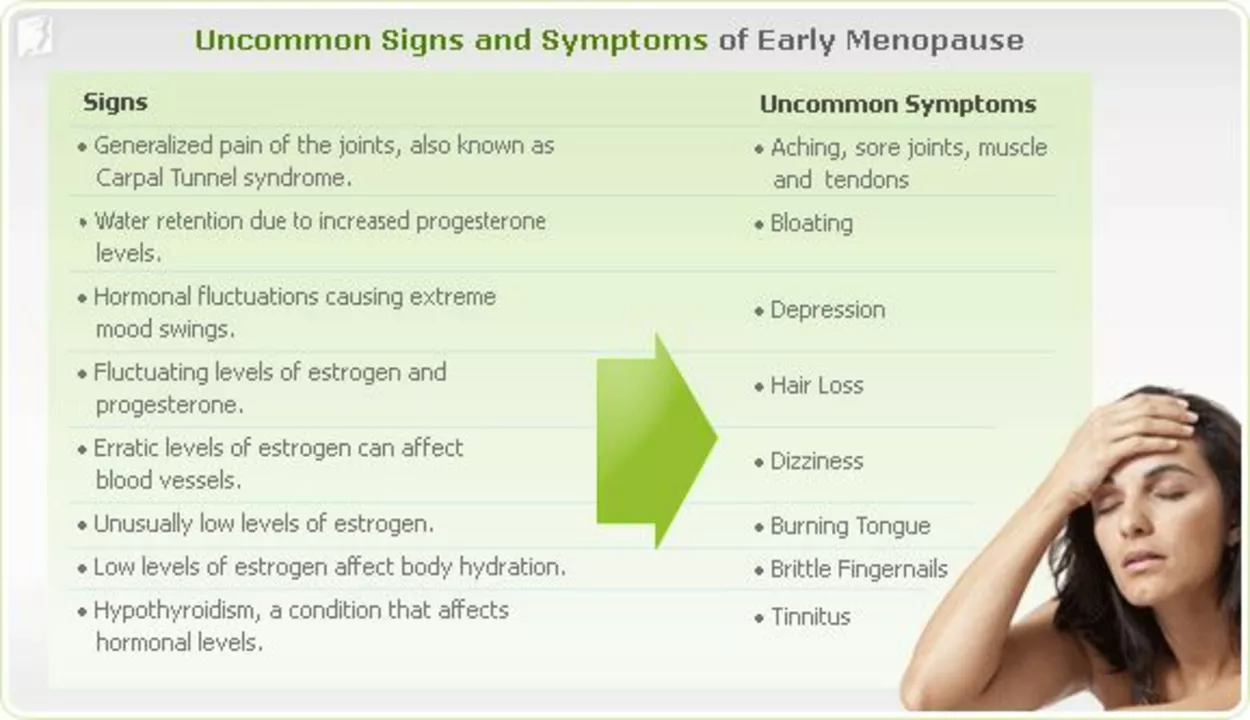Menopause – What You Need to Know Today
Going through menopause can feel like a roller‑coaster. Hot flashes, mood swings, sleep trouble – they all show up without warning. The good news? You don’t have to ride it alone. Below are straight‑forward tips that help you understand what’s happening and how to stay comfortable.
Spot the Signs Early
Most women notice changes in their late 40s, but menopause can start earlier or later. The most common clues are:
- Hot flashes: sudden heat waves that may end with a sweat.
- Night sweats: wake up drenched and struggle to fall back asleep.
- Mood shifts: irritability, anxiety or brief sadness.
- Sleep problems: tossing and turning even when you’re not sweating.
- Vaginal dryness: discomfort during intimacy.
If you tick a few of these boxes, it’s worth talking to your doctor. A simple blood test can confirm hormone levels and rule out other issues.
Safe Ways to Manage Symptoms
There are three main routes people take: lifestyle tweaks, over‑the‑counter aids, and prescription options.
Lifestyle changes work for many. Dress in layers, keep a fan nearby, and avoid spicy food or caffeine right before bed. Regular exercise – even a 20‑minute walk – can lower the frequency of hot flashes.
OTC help includes products like black cohosh or soy isoflavones. They mimic estrogen in small amounts and may ease mild symptoms, but talk to a pharmacist before starting any supplement.
Prescription routes cover hormone therapy (HT) and non‑hormonal meds. HT can balance estrogen and progesterone levels, easing most signs. If hormones aren’t an option, doctors might suggest antidepressants such as Cymbalta or Wellbutrin, which also calm mood swings and night sweats.
Remember, every body reacts differently. Start with the lowest dose that works, then adjust under medical guidance.
Everyday Lifestyle Hacks
Small habits add up. Keep a water bottle handy to stay hydrated – dehydration can amplify hot flashes. Swap heavy blankets for breathable sheets; cooling pillow inserts are a cheap upgrade.
Mind‑body practices like deep breathing, yoga or short meditation sessions calm the nervous system and reduce anxiety spikes. If you struggle with sleep, try a nightly ritual: dim lights an hour before bed, avoid screens, and consider a lavender scent.
Nutrition matters too. Foods rich in calcium and vitamin D protect bone health, which can weaken after menopause. Aim for leafy greens, fortified dairy or plant milks, and get sunlight when you can.
When to Reach Out for Help
If symptoms disrupt work, relationships or your overall well‑being, schedule a visit. Bring a list of what’s bothering you – frequency, intensity, triggers – so the doctor can tailor treatment.
Proactiv Medication Hub has articles on many meds mentioned here, from antidepressants to hormone alternatives. Use our search bar to find detailed guides on each option.
Menopause is a natural phase, not a disease. With the right info and a few practical moves, you can keep feeling like yourself – just a wiser version.
Aripiprazole and Menopause: Can it Help Manage Symptoms?
In my latest blog post, I explored the potential connection between Aripiprazole and menopause, specifically whether it can help manage symptoms. Aripiprazole, an antipsychotic medication, has shown promise in treating various mental health conditions. Some studies have indicated that it might be useful in managing mood swings and emotional symptoms associated with menopause. However, more research is needed to validate these findings and understand potential side effects. I encourage you to read the full article for a deeper understanding of how Aripiprazole might play a role in easing menopausal symptoms.
More
